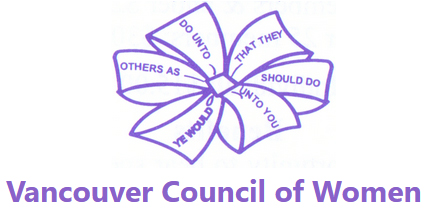By Victoria Shelkovnikova, Citizenship and Immigration Convenor
Today I bring to your attention part of the 2022 Annual Report to Parliament on Immigration, and Immigration, Refugees and Citizenship Canada (IRCC).
Gender-Based Violence Strategy
In June 2017, the Government of Canada announced It’s Time: Canada’s Strategy to Prevent and Address Gender-Based Violence, the federal response to gender-based violence. The initiative focuses on three main areas of action: prevention, support for survivors and their families, and the promotion of responsive legal and justice systems. Under this federal strategy, IRCC received $1.5 million in funding over five years (2017–22) to further enhance the Settlement Program, which delivers pre- and post-arrival settlement services to newcomers to Canada. The funding is being used to develop and implement a settlement sector strategy on gender-based violence through a coordinated partnership of settlement and anti-violence sector organizations. In response to the increase in gender-based violence in the pandemic context, IRCC consulted with service provider organizations to better understand the situation for newcomers. As a result, IRCC issued guidance and information to organizations on the continuation of services considered essential, which included providing support to clients experiencing gender-based violence.
Canada’s Assistance to Women at Risk Program
The Canada’s Assistance to Women at Risk Program is designed to provide resettlement opportunities to women who are at increased risk of discrimination and violence, including those who are in precarious situations where local authorities cannot ensure their safety. Some women may need immediate protection in the short-term, while others are in permanently dangerous circumstances. Gender-based persecution is one of the grounds upon which Canada grants refugee protection. In 2021, Canada resettled 995 vulnerable refugee women and children through this program.
Measures to support newcomers to leave situations of family violence
Measures to support newcomers to leave situations of family violence were introduced in 2019 and continued throughout 2021 to help individuals escape abuse. These measures included:
- An expedited, fee-exempt, temporary resident permit for individuals who lack status, which also gives individuals a work permit and temporary healthcare coverage under the Interim Federal Health program. In 2021, 167 permits were issued under this initiative.
- An expedited process for victims of family violence or abuse to apply for permanent residence on humanitarian and compassionate grounds. In 2021, 84 applicants under this process were approved.
Racialized Newcomer Women Pilot
Programming under the Racialized Newcomer Women Pilot (formerly the Visible Minority Newcomer Women Pilot) is designed to support employment outcomes and career advancement for racialized newcomer women through the delivery of settlement services. Extensions were provided to 11 projects, originally anticipated to end in March 2021, that was best suited to continue direct service delivery to support racialized newcomer women as the economy recovers.
Permanent Residents Admitted in 2021 by Top 10 Source Countries
| Rank | Country | Total Number | Percentage (%) | Males | Females |
| 1 | India | 127,933 | 32 | 73,075 | 54,858 |
| 2 | China, People’s Republic of | 31,001 | 8 | 13,418 | 17,583 |
| 3 | Philippines | 18,021 | 4 | 7,716 | 10,305 |
| 4 | Nigeria | 15,593 | 4 | 7,469 | 8,124 |
| 5 | France | 12,688 | 3 | 6,683 | 6,005 |
| 6 | United States of America | 11,951 | 3 | 5,990 | 5,956 |
| 7 | Brazil | 11,425 | 3 | 5,631 | 5,793 |
| 8 | Iran | 11,303 | 3 | 5,475 | 5,825 |
| 9 | Afghanistan | 8,569 | 2 | 4,274 | 4,295 |
| 10 | Pakistan | 8,476 | 2 | 4,274 | 4,202 |
| Total Top 10 | 256,960 | 63 | 134,005 | 122,946 | |
| All Other Source Countries | 149,039 | 37 | 73,506 | 75,530 | |
| Total | 405,999 | 100 | 207,511 | 198,476 | |
Source: IRCC, Chief Data Office (CDO), Permanent Residents Data as of March 31, 2022.

